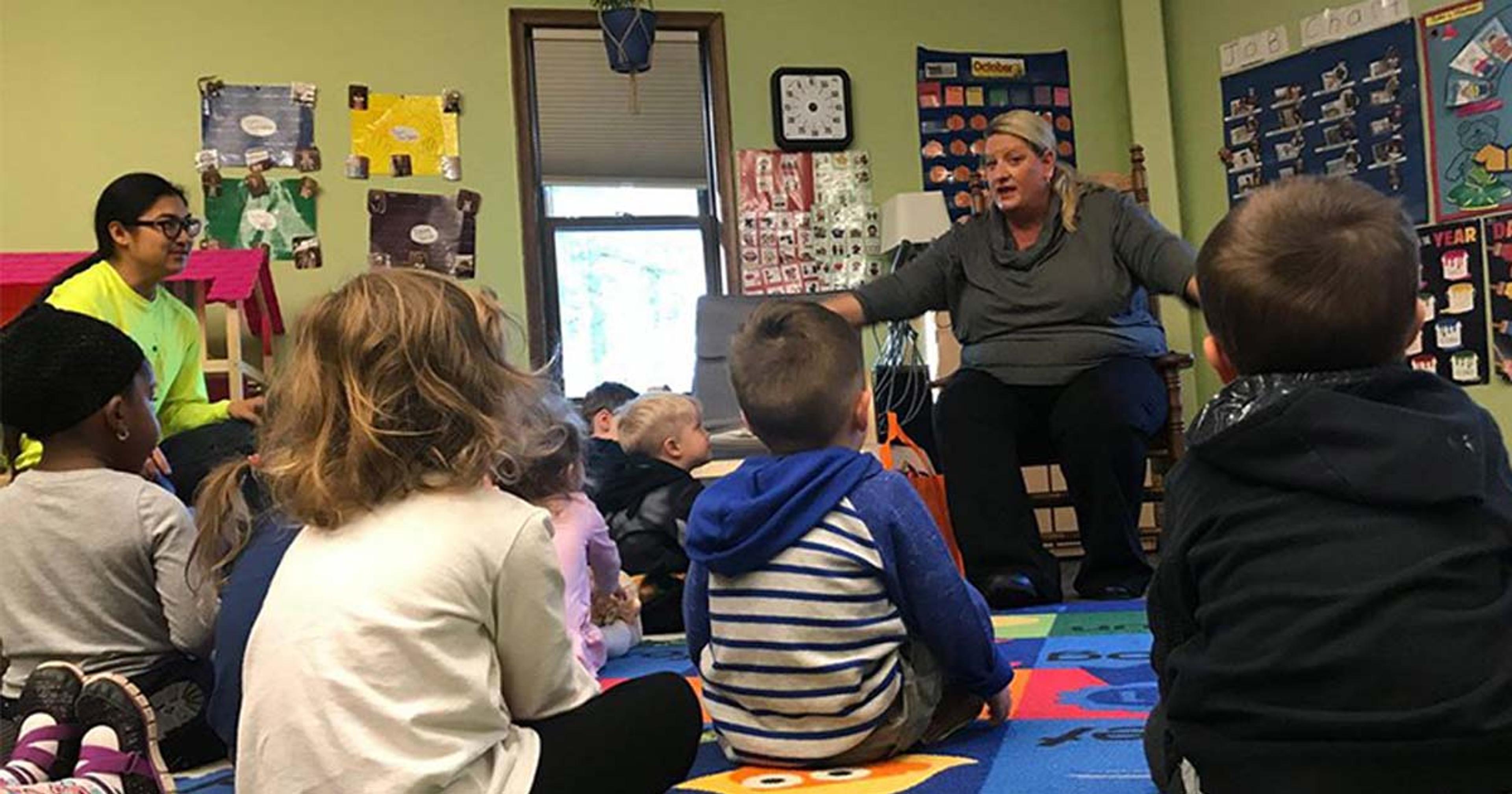Washtenaw Area Council for Children Expands Educational Services with Community Health Matching Grant

Jake Newby
| 5 min read
Jake Newby is a brand journalist for Blue Cross Blue Shield of Michigan.

About 1 in 7 girls and 1 in 25 boys will be sexually abused before they turn 18, according to the Washtenaw Area Council for Children (WACC), and that Black children are at risk of being sexually abused at a rate almost twice that of white children. Chilling statistics like these are why the WACC has spent the last 47 years promoting child safety and preventing child abuse through education across Ann Arbor, Ypsilanti, Chelsea, Dexter, Manchester, and Milan, Michigan. In 2022 the council was able to set aside the long, arduous process of trying to collect funds for its programs, and instead focus on expanding its reach to as many families as possible, thanks in large part to the two-year Community Health Matching Grant Award presented to the WACC in April 2021. “One thing that was really helpful with this grant specifically is that it was spread over two years, and that it substantially funded the program,” said Michelle Walters during an interview with Blue Cross Blue Shield of Michigan (BCBSM). Walters is the executive director of the WACC. “I didn’t have to keep looking for more funding to help support the work we were trying to do. So, it freed us up to say, ‘We can do the work, we don’t have to sit here trying to find money to do the work, we can actually just do it.’” The grant provided the WACC $20,000 in funding for the 2021 and 2022 calendar years. The $40,000 total sum – toward the WACC’s “Healthy Relationships. Healthy Children. Healthy Lives” initiative – will bolster two child sexual abuse prevention programs across the Washtenaw County area: the “Body Safety Training Program” and the “We Care Elementary: Healthy Relationships Project.” These programs, Walters said, are directly correlated with one another. The WACC’s body safety training program entails ten sessions with children aged 3 through second grade. In the first week of training, the child learns what to do in specific situations. For example, if the child is home alone or finds dangerous objects like matches, chemicals, or guns. “The second week that we meet with them we talk about their body safety rule,” Walters explained. “No one should look at or touch their body inappropriately, unless they are hurt, or they need help. It’s really important for kids to understand that there is a fine line between playing games and doing things that are inappropriate. Even if it’s people we know, even if it’s people we trust. The children learn it’s not OK to violate their body safety rule.” Walters, who is a Limited Licensed Masters Social Worker (LLMSW), said communication is the backbone of this program. Often – especially in African American/Black communities – children tend to be discouraged from reporting abuse if it happens to them. A general mistrust of the justice system and a fear of tainting the family name can contribute to a “silent code” about sexual abuse. The WACC wants to chip away at the stigma surrounding speaking out about child sexual abuse through programs like body safety training, which also tries to help kids recognize attempts at manipulating them to keep quiet and grooming. “We talk to kids, especially in this age group, about telling someone and getting help. It’s hard for them because they think, ‘Is it safe to tell somebody? This person violating my body safety rule is telling me I shouldn’t tell. That I’ll get hurt, or my dog will get hurt or they’ll hurt my mommy if I say something,’” Walters said. “It’s important for kids to understand that we as adults are there for them and we will help keep them safe and protected and do anything we can to make sure that never happens again to them. They have a lot of power, though, and they have to know how to use that power to disclose a problem.” The WACC’s second cornerstone program, the “We Care Elementary: Healthy Relationships Project,” is a developmentally targeted, trauma-informed sexual abuse prevention program for children in grades 3-5. “The typical class is six sessions of 40 to 50 minutes long where we talk to kids about sexual harassment, life skills development, relationship building, communication skills, and many other topics,” Walters said, before mentioning the program’s lengthy implementation process. “We’ve been able to launch the program, we’ve done the marketing, we’ve developed brochures and we’ve gone before school boards and their curriculum development committees to get it approved. Because with this curriculum, we’re talking about sexual topics and body parts specifically, so we have to have those pieces approved by curriculum departments before it can be implemented in those classrooms.” Right now, Walters said, “We Care Elementary” is in the process of being implemented in after-school programs in the Ann Arbor District and is awaiting approval in the Lincoln District, which hopes to benefit from the program as soon as this fall. Milan has also benefitted from this program and is working on the fall schedule. “Having the funding has helped support us to do the things we need to do, to encourage people to put this on their list of approved curriculums,” she added. The BCBSM Foundation and its funding partners awarded Community Health Matching Grants to 23 Michigan nonprofit organizations in 2021. Many of those recipients – including the WACC – make it their mission to prevent abuse and improve the social development, educational success, nutrition, and mental and physical health equity of children across the state. Photo credit: WACC Related stories:





